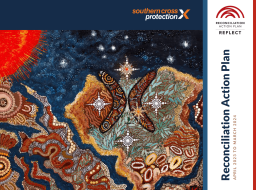In an open letter to his unborn child, Ben Beville – Business Development Manager at Southern Cross Protection – pens his reflections on mastering the art of living.
My dearest Peanut:
Today you are only 18 weeks old inside your mother’s womb. Someday you’ll be 22 years old, which through your eyes today is over 63 lifetimes away, but one day it’ll seem like it passed you by in only 63 seconds. Your mother and I don’t yet know if you’re a boy or girl, so we’ve nicknamed you Peanut, because that’s how big you were when we first learned you were coming, and we have loved you ever since. I already know the task that is before me, and tears of joy flow freely down my cheek as I write you this letter.
I had a dream some weeks ago. In my dream I was a superhero, flying all over the world faster than a speeding bullet, fighting epic battles with great super-villains, rescuing beautiful damsels in distress, and having the time of my life. Suddenly I was at my wedding reception; I had secluded myself from the party, and I was very sad. Two faceless friends approached to console me.
“Why are you sad?” they asked. “Are you disappointed that you didn’t get to do everything you wanted with your life?”
“No,” I replied. “I’ve achieved or at least attempted everything I’ve ever wanted, and I have no regrets. I’m just sad that it took me until I was 30 years old before I started to learn how to truly live my life. I wish I had started living sooner, and I blame my father for not teaching me everything I now know I needed to learn.”
When I woke up, I knew exactly what the dream was telling me. You see, years ago, in the middle of a very challenging military deployment to the East African desert, I discovered that the universal purpose of life – for every human, every animal, every plant, every microbe even – is to evolve. The proof and the practical implications are topic for a different letter (or rather a series of books I’ve been writing for you for years), but for now suffice it to say I know I have a mission: to teach you how life works, and to teach you how to change the world if you choose to.
If I were 22, what do I know now that I wish I had known then? What ten lessons could I give you? At that age I was young, stupid and invincible. But I am who I am today because of the collective result of all my successes and all my failures, a result which we commonly term “experience”. If I changed even one decision, I would have become a different person, and perhaps I wouldn’t be writing you this letter, so I wouldn’t want to go back and change a thing. But how much more could I have achieved if I knew then everything I know now, even if nothing more than the mere basics of life? How much more could I have achieved if I had then the clarity and purpose I have today? What then shall I teach you so that when you’re 22, you’ll have the clarity and purpose that I didn’t?
1 Begin each day with why. Why do you do what you do? Why do you get out of bed every morning? Why do you exist? When you understand that, you’ll never have to worry too much about “what” to do. The “what” becomes easy when you understand the “why”, and then you’ll just have to figure out the “how”. Until you find your own path, I can tell you that your purpose in life is to evolve, so you have two imperatives: first to survive at all costs, which requires you to improve yourself daily so that you can best adapt to your ever-changing environment; and second to do everything within your power to develop the generations that follow you, so that they can build a better world than yours.
2 Frame your life within a set of core values that define you. There are many good ones, but I’ve found three that have stood out to me above all others; I learned these as a cadet at the U.S. Air Force Academy, and after testing them for years and years, I’ve found them to be relevant in every challenge you could ever experience: integrity first, service before self, and excellence in all we do. You can choose others if you wish, but choose them you must. Walking through life without such a framework is like a man who builds a house with no foundation; when the storm comes, the whole house crumbles.
3 The whole notion of success and failure in life is ignorant and archaic. Of your two grandfathers, one of them was a business genius. He was born a farmer during the Great Depression, but he worked obsessively and became a self-made multi-millionaire. The other was merely a labourer his whole life, never receiving an education, and never advancing himself in any significant way. The first one worked so hard that despite all his money, he sacrificed everything that was important to him: his family and his health. Eventually he lost all his money, too. During his final years, he is alone, in poor health, and has no worldly possessions to his name. The second one took his family out of a war-torn nation, settled in Australia, worked 18-hour days his whole life, provided for his children, built a home, put his youngest daughter (your mother) through university, and has lived his final years surrounded by his family and loved ones. Which of the two was was a failure in life?
The answer is neither, because a person’s life can be neither a success or a failure; a person’s success can only be measured by degrees of evolution. Both men have been successful: they both survived unimaginable hardships, and they both developed their next generation to be better than their own. Therefore they both achieved their purpose in life.
4 Learn to embrace all your mistakes, because every mistake brings you closer to your goal. When you succeed at something, you learn very little, but failure is your greatest teacher. If you’ve never failed, you’ve never challenged yourself, and you’re not trying hard enough. Always aim to succeed in every endeavour, but always plan for failure. Mistakes are the very fuel of evolution.
5 Learn to master your emotions; manage all your fear and purge all your anger. The failure to achieve this is every man and woman’s greatest downfall.
6 Innately talented men and women are a dime a dozen, and most of them never achieve anything significant. The true champions in this world are the ones who practice… and practice… and practice…
7 A sage must never seek to fight, but he or she must always be ready for it. To quote one of my senseis, “we learn to fight so that hopefully we never have to”.
8 The day you know that you’re immune to all rejection, that day you’ll know you’re ready to start looking for a worthy life partner, not a minute sooner… The day you know you’re completely comfortable being alone, that day you’ll know you’re ready to find someone truly special, not a minute sooner… The day you know you can withstand any heartbreak, that day you’ll know you’re ready for a life-long relationship, not a minute sooner… How do you build immunity to rejection? Go get yourself rejected a thousand times, and then I’ll tell you the answer… How do you get good at relationships? Go try and fail a hundred times, and then I’ll tell you the answer… How do you build immunity to heartbreak? Go allow yourself to have your heart shattered a hundred times, and then I’ll tell you the answer…
Don’t ever be unfaithful to your partner; the unevolved man or woman will choose to be a victim of their own emotions, and some will choose to never recover. But as a highly evolved man or woman, you must understand that monogamy is strictly a result of a person’s choices and commitments; biologically, we humans are not designed to be monogamous. So when that day comes and you discover that the love of your life has been unfaithful, forgive. Always forgive. Just becomes someone hurts you, it doesn’t mean you must carry that pain for the rest of your life. Master your emotions, decide whether or not you wish to continue that relationship, then choose to shake it off, let it go, and move on with your life. It might happen again with someone else, and you’ll be fine. Betrayal hurts, no doubt, and you don’t have to allow it, but it’s not the end of your world.
9 Devote yourself to developing your body and your mind daily. Begin with your body, following a balanced program that includes weights, cardio endurance, speed and interval training, and yoga. Eat healthy. Read. Study. Achieve the highest level of education you’re able to. No matter what path you choose, no matter how non-technical, you must learn science and mathematics, because this is the foundation of the new generation. Someday, life will hit you harder than you’ve ever been hit, and it will knock you off your feet. When that day comes, get up! Get up! Get your hands up! Get back in the fight! You may have to reset your life completely, back to square one, just as I have several times. And that’s OK. Start over, and begin with your body. No matter how long you have neglected yourself, transform your body first, get yourself physically back in shape, and when your body is healthy, your mind will be able to follow.
10 And lastly, this is the most important lesson I have to teach you. “Faith” is the certainty of what you cannot see, and you must always have it. However, blind faith will lead you astray, and this has been the greatest tragedy in human history. Just because something doesn’t make sense, it doesn’t mean you have to accept it by faith. Just because we’ve always done something a certain way, it doesn’t necessarily mean it’s right. Sometimes, things don’t make sense because they’re wrong. So learn to question everything and everyone: every teaching, every tradition, every guru, priest, pastor, reverend or imam. Examine every belief, including your own. Find the origin of each belief, and follow its evolution throughout history. You won’t always find the truth, but it won’t take you long to find the lies.
To understand God, you must be a scientist, because to study God and to study science are one and the same. Begin by asking yourself if God exists, then turn to astronomy and quantum physics to seek your answer. If God exists, He must be omnipresent, otherwise He is not God. How would that be physically possible? And when you find that answer, what are the practical, daily implications to your faith? Become a student of all religions, to understand what others believe and have believed throughout history; respect them all equally, because you’ll never know when their understanding of truth is better than yours. You’ll discover that all religions have more similarities than differences. Why is that, and what are the implications to your faith? Become a student of neuropsychology, and seek to understand our human nature; then you’ll begin to see the influence of human imperfection on our belief systems throughout time. Become a student of history, and seek to understand the evolution of our civilisation.
Seek to understand all of these things, follow your own path, and find your own answers; after you’ve persisted for enough decades, perhaps one day you might be ready to begin understanding the true nature of God.
If I were 22, these are some of the things I wish I had understood. Therefore, my dearest Peanut, it is my life’s mission to teach you all these things and more, so that on the day you turn 22, you will be truly ready to be the master of your own life.
Love you always,
Dad






